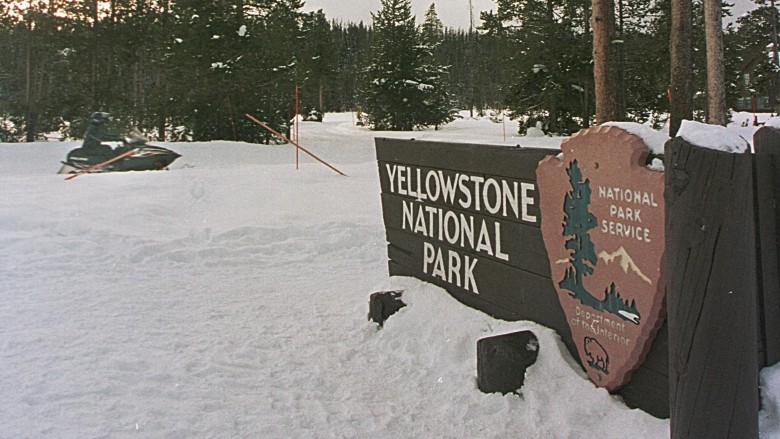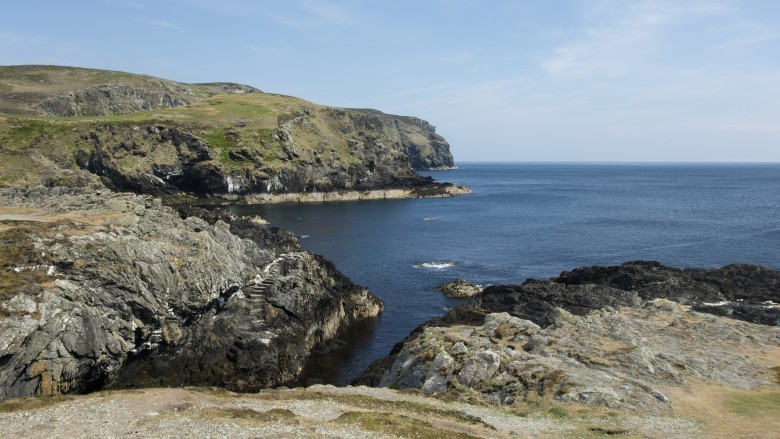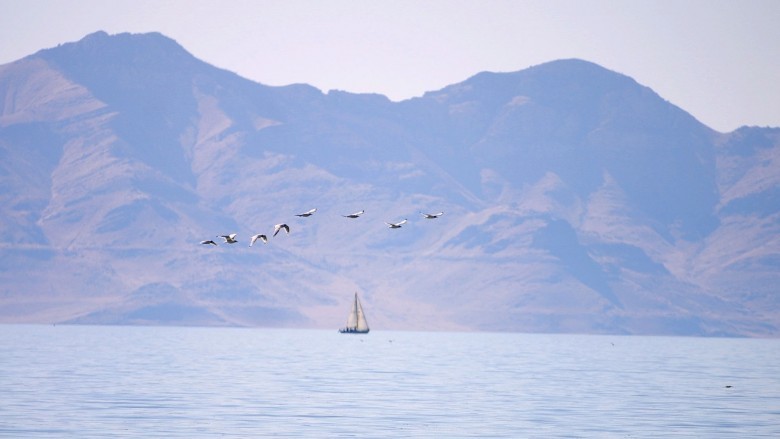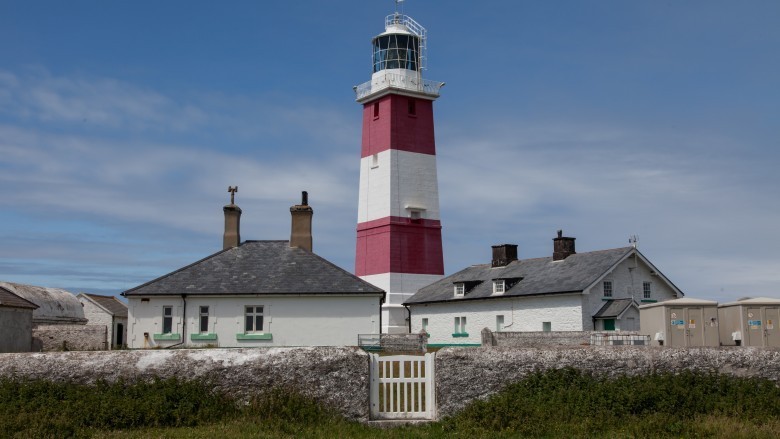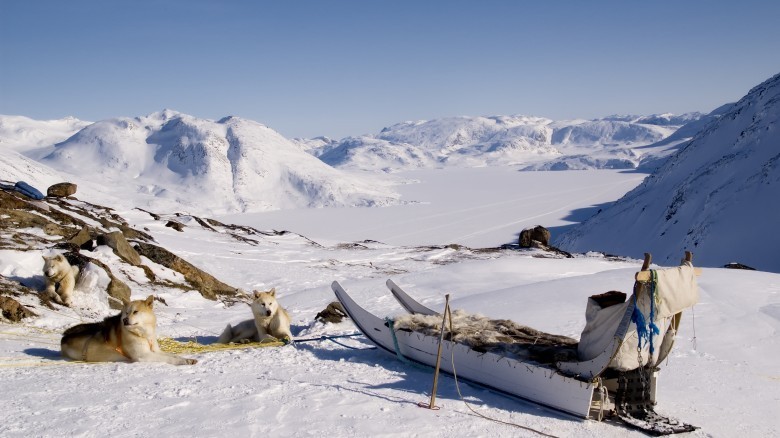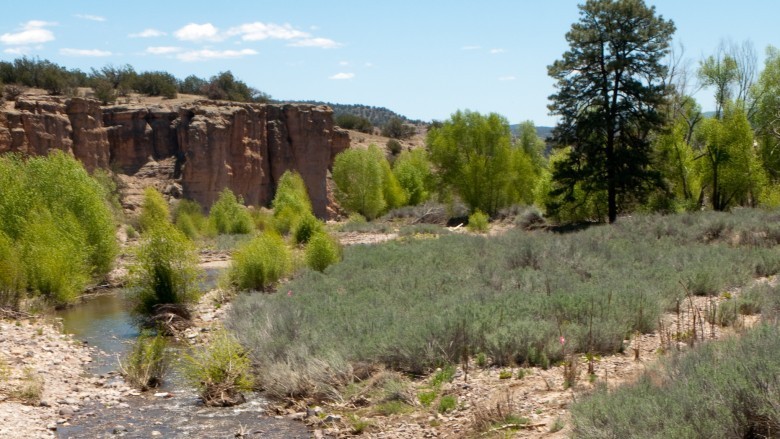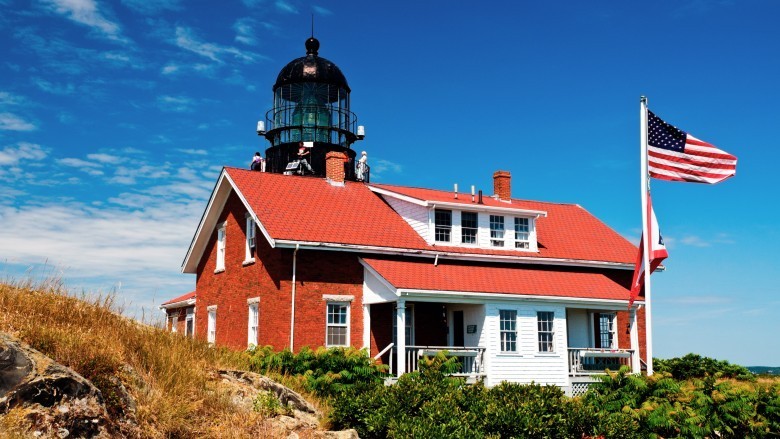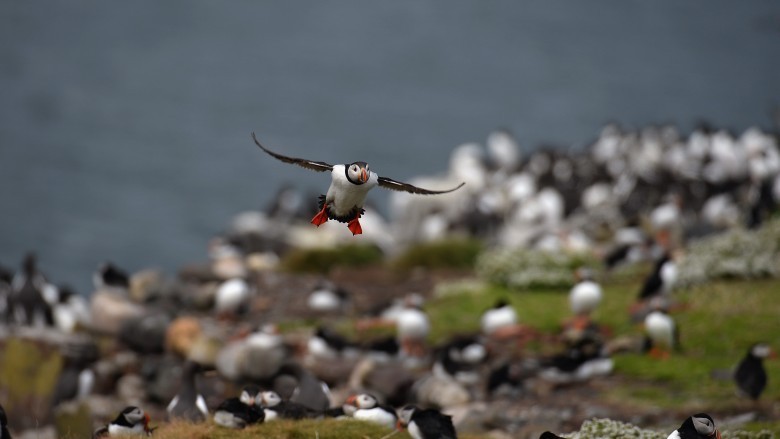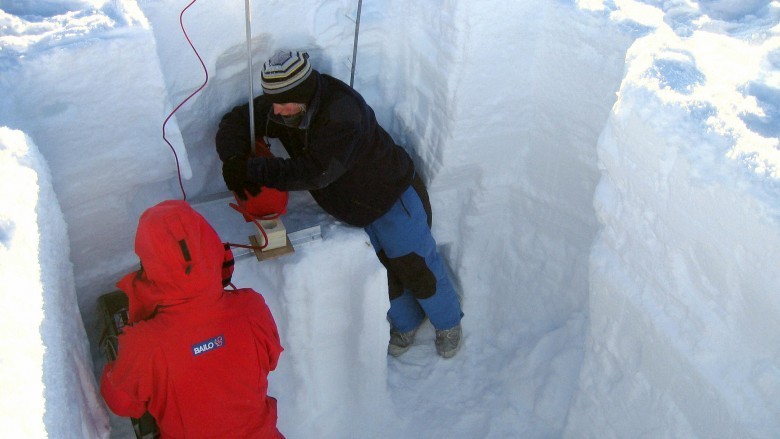The Loneliest Jobs In The World
Some people prefer being alone. Others avoid solitude like the plague. Then you got your folks who work outside of civilization entirely with little to no social interaction whatsoever. Some seek these jobs because they like being alone while others might chase after them for the experience. Either way, there are some crazy jobs out there for those of you who just want to get away from it all.
Yellowstone National Park winterkeeper
For over 40 years, Stephen Fuller has been the Yellowstone Canyon Village winterkeeper. He lives at the park year-round, but his job only starts getting crazy around winter because once the snow starts falling, he gets completely cut off from the rest of the world. Around November, blizzards hit the park, closing off all of the roads that allow him to contact his nearest neighbors some 16 miles away.
In the past, it was just Fuller and his family, which sounds oddly like The Shining. But Fuller never felt the need to go crazy and axe his family because he's too busy to get cabin fever. As the winterkeeper, his duties mainly involve keeping the facilities of Canyon Village in good working order, which eats up a good amount of his time. One of Fuller's duties has been shoveling hundreds of pounds of snow off of various buildings' roofs, a job he has described as "a chance to empty your mind ... maybe tussle with a question or problem." That's one way of looking at it.
Fuller has worked his job since 1973. Now, he's separated from his wife, and his children live their own lives, so it's just Fuller during the winter. He doesn't mind, though, since he's come to regard the area with a special reverence: "It's just ... it's just home." Keep on keeping on, crazy snow hermit.
Warden of the Calf of Man
The Calf of Man is a small island off the coast of the Isle of Man in the UK. It is home to a bird observatory, a small farmhouse, and not much else. Cut off from the rest of the world, it can only be reached by boat, which is also the only way supplies can be brought to the island. This is pretty inconvenient, considering that inclement weather can keep said supply boat from the island for weeks at a time. Usually, there are just one or two wardens (an estate warden and a bird observatory warden) of the Calf of Man. According Ian Lycett, the island's previous warden who worked there alone for nine months, the job is most suited for "independent souls." Who would've guessed?
The island has very few conveniences. All power is by generator, wardens have to fetch their own water, and they're permitted only one shower a week. On the bright side, there's over 40 species of birds and a large population of seals to be watched!
Currently, there's an effort to eradicate rats from the island, which is surely exciting. All in all, the wardens don't have an easy time. Despite this, the job has managed to attract 45 applicants since last year, so there's some interest in living on a bird-infested island for almost a year.
Fertilizer harvester in Utah
On the lonely Great Salt Lake's west shore in Utah, Todd Stimpon works a job harvesting a product most of you have no idea even exists although it's of vital importance to the world: sulfate of potash. Sulfate of potash is used to create one of the key ingredients in most fertilizers. It also has the added advantage of being free from chloride, which is found in most other sources of potassium. Stimpson shares this job with just one other person, and they alternate operating the facilities throughout the year.
Now, keeping in mind that it's just one person working the job at a time, their workload is crazy. They have to keep pumps spread across thousands of acres of shallow evaporation ponds in good working order. The job requires a lot of devotion: the evaporation process in the ponds take three years to come to fruition, with the first year being nothing more than watching and taking measurements. Because of the lake's salinity, one of his key duties is just flushing out salt buildup in the pumps.
The living facilities consist of a single mobile home hours away from civilization, and Stimpson can go days without contact with another human being (with the exception of radio communications to ensure his safety). His only company is a cat who lives in the home and a satellite television, so that's kind of cool. But he's not allowed to leave the area until his replacement arrives.
Castaway on Bardsey Island
Bardsey Island is remote island about 2 miles off the coast of Wales, where there is little else to do but stare at sheep all day. However, while there are very few people on the island, there's a much larger, spookier demographic: the spirits of 20,000 Celtic saints rumored to be buried on the island. The island is a popular tourist location during the spring and summer, but for the rest of the year, it's completely isolated, with the exception of a few sheep farmers and the professional castaway. Yep, you read that right: "professional castaway."
That's the job title for the caretaker of the island who works to accommodate day trippers to the island during warmer months. Once the tourists stop coming as it becomes colder, the job changes: the castaway becomes almost totally isolated for some six months out of the year and must maintain the island's buildings and facilities, which includes emptying the island's composting toilet, a job that sounds like it's straight out of the Middle Ages. The island's power comes from solar panels, and there's even Internet access, so it can't be all that bad, even though thousands of ghosts share the island with you. So, future castaways, good luck on your pretty haunted island.
The Sirius Dog Patrol
The Sirius Dog Patrol is probably the world's most difficult job. Imagine you and buddy trying to monitor 60,000 square miles of ice cold land with nothing but a dog sled team to transport you. That is what the Sirius Dog Patrol is responsible for.
Technically, this part of Greenland is controlled by Denmark, and it's a valuable property to have since it has some of the largest oil reserves in the world. So to keep their claim over this barren wasteland, Denmark dispatches the Sirius Dog Patrol to protect its sovereignty. The patrol consists of twelve men from the Denmark Royal Navy who split to form teams of six, and they are solely responsible for this area, which is three times the size of Denmark itself.
Starting in August, the patrol will spend the next six months freezing to death in northern Greenland, where two months of that time will be in almost complete darkness, so this is literally a place where the Sun don't shine. The average temperature is 14°F with the lowest recorded temperature being –67 °F, so it's cold. Luckily, they have specially bred sled dogs who are heavier and stronger than most other sled breeds, so they can take on a lot more from this hellhole. There are 14 dogs for each team, and they are so badass that they can sleep perfectly fine outside through even the worst of weather, while the two patrol men get a special tricked-out tent to sleep in. By the time they retire, most of the sled dogs will have traveled over 12,000 miles during their time of duty, which means that you can truthfully say "good boy!" to them.
Is the job worth it? Probably not, but, you know, it's still a job.
Guardian of Gabo Island
In this day and age, lighthouses are mostly just picturesque relics of the past, but without them, you ran the risk of death just for sailing at night. Gabo Island is one place where a lighthouse is still kept in working order. Gabo Island is off the coast of Australia and is surrounded by dangerous, choppy waters because everything in Australia is obligated to be lethal somehow. For the past decade, Leo Op Den Brouw, a former plumber, has been the caretaker. Other than the occasional tourist (the island can accommodate up to eight guests at a time), Op Den Brouw is usually completely alone on the island and remembers his longest stretch in solitude as lasting 21 days. His only company: the island's 30,000 penguins. Don't worry, though. According Op Den Brouw, when he gets uncomfortable, he just looks at the island's scenery, which sounds like an inspirational quote you'd find on a friend's facebook feed.
As for what Op Den Brouw does with all of this time, it is split between doing standard maintenance and trying to find activities to stave away boredom. His duties include watching for weather reports, keeping up the island's airstrip and three residences, looking over the power supplies, and mowing the island's grass, which he claims is his most time-consuming task. If you think all of these duties would leave him with no free time, you'd be wrong. His had enough time to read The Lord of the Rings books dozens of times and learn numerous hobbies, such as carving driftwood sculptures—which, knowing his circumstances, are probably the only things keeping him from going absolutely insane.
Fire lookout at Gila National Forest
Gila National Forest is located in the remote New Mexico wilderness, which gets pretty balmy during the summer. This can make the area susceptible to forest fires, which are almost impossible to put out, so nipping it in the bud before it spreads is a high priority of the park's management. So who has this task? It's not Smokey the bear: for over a decade it's been a former editor for the Wall Street Journal, Philip Connors. Connors quit his job after 9/11 and went to New Mexico, where he got the job he has now.
Fire lookouts are also known as "freaks on the peaks" because, more often than not, they're completely alone for long periods of time on top of high lookout points, which is suitable only for certain types of people—i.e., loners who would otherwise be called crazy. Connors's sole duty is to watch out for smoke while atop a 45-foot tower (which is itself 10,000 feet above sea level) using binoculars. If that sounds incredibly boring to you, you'd be absolutely right. Connors has a huge amount of downtime, which he fills with hiking and other outdoor activities, along with reading and writing. He also has to repair his cabin every time he returns for the summer since it's pretty much unoccupied for some seven to eight months out of the year. Other than being away from his wife, he's mostly content being a mountain recluse, doing the job of a condescending cartoon bear who lectures us about fire safety.
Lighthouse keeper on Seguin island
Seguin Island is home to Maine's tallest and second-oldest lighthouse, and it's maintained by a couple who gave up everything for the peace and quiet: Mitchell Thorpe and Patty Sullivan. While you're probably imagining some romantic picture of the two living a real-life fantasy on their very own island, the reality isn't as rosy. For one, the only way off the island is a ferry operated by a local man that takes nearly 30 minutes to get to Popham Beach on the mainland, so if there's an emergency but the ferry isn't running ... well, they're probably gonna die. And aside from that dark scenario, the island and its facilities take a ton of work to stay in tip-top shape for the occasional tourist.
The couple have to make a weekly trip to civilization just to do basic tasks like laundry, grocery shopping, and even to just throw away trash. All of the island's toilets are composting, so they have to be cleaned pretty much every day. There's no Wi-Fi on the island besides a flaky, unreliable hotspot, and all of the island's water is undrinkable, so they have to go to the mainland to get enough tap water to last them for the rest of the week. To top it all off, the island's supposedly haunted (of course it has to be haunted). One myth says a former caretaker can be heard playing the piano from beyond the grave, while another says you can hear the laughter of a little girl because no haunting is complete without creepy giggling ghost kids.
Ranger on Farne Island
The Farne Islands are some of the most isolated and rough islands in the UK, if not the world, so its rangers have to be equally tough-as-nails to live there. David Steele, who worked on the islands for over a decade, can testify to the brutal conditions there since during its frequent storms, he was cut off from the rest of the world for an astonishing 17 days. After four days, he had run out of fruit and vegetables. By the next day, he was out of milk, and the day after that, bread. For the remainder of the time, he was forced to ration out some tinned supplies, and this kind of occurrence is not unusual at all. In fact, Steele could regularly go eight or ten days without any new supplies, oh, and did we mention no running water?
It wasn't until 2013 that conditions somewhat improved for the 11 wardens of the island, when they started growing fresh produce for the first time since 1909. The wardens spend nine months out of the year on the islands away from all civilization, so why it took so long for them to decide to grow their own gardens, we'll probably never know (in all fairness, the islands' inhospitable soil probably has something to with it). The rangers are responsible for Farne's biggest demographics: puffins and seals. The island is home to one of the world's largest seal colonies and thousands of puffins. One of the rangers' duties is hair-drying damp chicks since puffins use the island as breeding grounds. Although some 50,000 tourists go through the islands each year, rangers still spend most of their time in complete solitude, so it's probably not a job for a social butterfly who, you know, likes to live with modern conveniences like running water.
Researcher at the Concordia Research Station
The Concordia Research Station is located dead center in the middle of Antarctica. The place is so hostile and desolate that there's just a three-month window of time out of the year that you can come and go from the place. Yet it is there that the future of humanity might lie.
Concordia is so isolated that it's the perfect place to study the long-term effects of extended solitude. This research is valuable because it could help us prepare for manned missions to Mars. Concordia is a good place to do these kind of projects because it's so similar to our neighboring red planet that it's been dubbed "White Mars."
The conditions are fierce: temperatures can range to such extremes as –112°F to –148°F with windchill (the average temperature on Mars is –67°F). At certain times of the year, Concordia can be in a complete darkness for up to three months, and being 3,800 meters above sea level, it can be difficult to breath. So what poor saps have to work Concordia? Usually just 13 people at a time and—also like space—if something happens to the crew, no one can hear their screams because they are at least 700 miles away from any other bases in all directions.
While there are such modern conveniences as the Internet and satellite cell phones, it can still be dangerous because of the unrelenting monotony. So the next time you're bored at the office around 2 in the afternoon, just be grateful that you aren't living in the middle of nowhere on the earth's equivalent of Mars where there's no sun, no joy, no ... anything.

